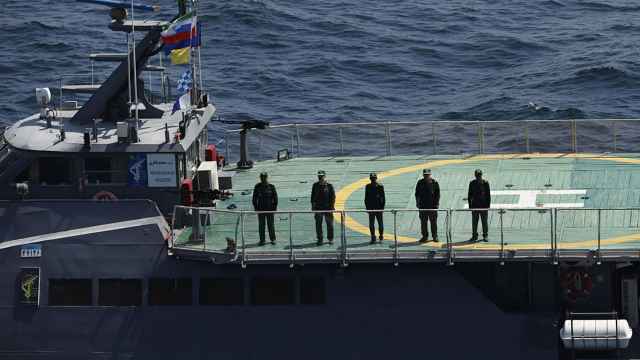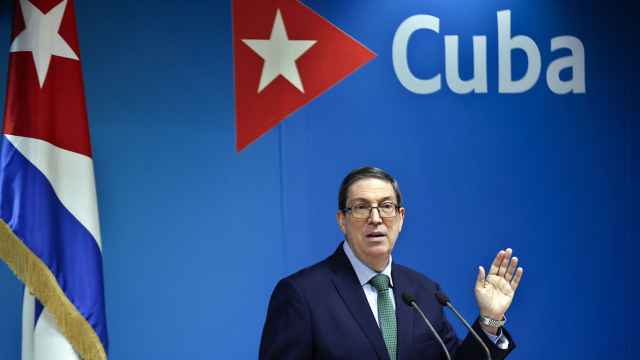A grand estate on the Black Sea, allegedly built for President Vladimir Putin, was partly funded by taxpayer money from a $1 billion hospital project, a Reuters investigation indicated.
While the existence of the property is well known, this trail of funding has not been revealed before.
Two allies of the Russian leader profited from state contracts worth about $200 million, according to customs documents and banking transactions examined by Reuters. Nikolai Shamalov and Dmitry Gorelov owned a company that supplied medical equipment to a federal hospital project — initiated by Putin — at prices some medical specialists say were inflated.
Shamalov and Gorelov then sent some of the gains to Swiss bank accounts, the records show. From those accounts money was transferred to a Liechtenstein account linked to the construction of a luxurious estate on the Black Sea popularly known as "Putin's Palace," the same records indicate.
Sergei Kolesnikov, a former business colleague of Shamalov and Gorelov, said in 2010 the estate was built on behalf of Putin. The Kremlin has denied that Putin, who has held power as president or prime minister since 2000, has any connection to the property.
The money trail emerged from a Reuters investigation into how the Russian state spends public funds. In a $1 billion health project announced by Putin in 2005, Shamalov and Gorelov acted as intermediaries, documents reviewed by Reuters show. The documents indicate two men owned a Britain-based company, Greathill, and used it to buy high-tech medical equipment, mostly from the German manufacturer Siemens AG. They then sold the equipment on to Russia at a profit.
Shamalov, a former sales executive of Siemens in Russia, did not respond to requests for comment. A spokesman for Siemens said the company was not aware of Shamalov's connection to Greathill. Gorelov said the import operation had been transparent and that Greathill sold equipment to Russia at prices approved by state specialists.
Bank statements indicate that the British company Greathill paid $56 million to accounts in Switzerland after 2006, when Russia began to implement Putin's $1 billion project to improve health care. Those Swiss accounts were controlled by a company called Lanaval, according to the bank records.
Documents reviewed by Reuters show that Lanaval then sent $48 million to an account in Liechtenstein controlled by Medea Investment, a company registered in Washington DC. Medea Investment is controlled by an Italian architect called Lanfranco Cirillo who designed the Black Sea estate, according to Kolesnikov. In a statement through his lawyer, Cirillo said he had been assigned work on the Black Sea property because of his experience and professional skills.
He did not respond to questions about the funding of the Black Sea estate and payments made to Medea. A spokesman for Putin did not respond to questions about Kolesnikov's claims and Reuters' findings. The Kremlin has previously dismissed Kolesnikov as an aggrieved man, saying he left Russia because of business disputes. Kolesnikov denied that suggestion.
A Message from The Moscow Times:
Dear readers,
We are facing unprecedented challenges. Russia's Prosecutor General's Office has designated The Moscow Times as an "undesirable" organization, criminalizing our work and putting our staff at risk of prosecution. This follows our earlier unjust labeling as a "foreign agent."
These actions are direct attempts to silence independent journalism in Russia. The authorities claim our work "discredits the decisions of the Russian leadership." We see things differently: we strive to provide accurate, unbiased reporting on Russia.
We, the journalists of The Moscow Times, refuse to be silenced. But to continue our work, we need your help.
Your support, no matter how small, makes a world of difference. If you can, please support us monthly starting from just $2. It's quick to set up, and every contribution makes a significant impact.
By supporting The Moscow Times, you're defending open, independent journalism in the face of repression. Thank you for standing with us.
Remind me later.





